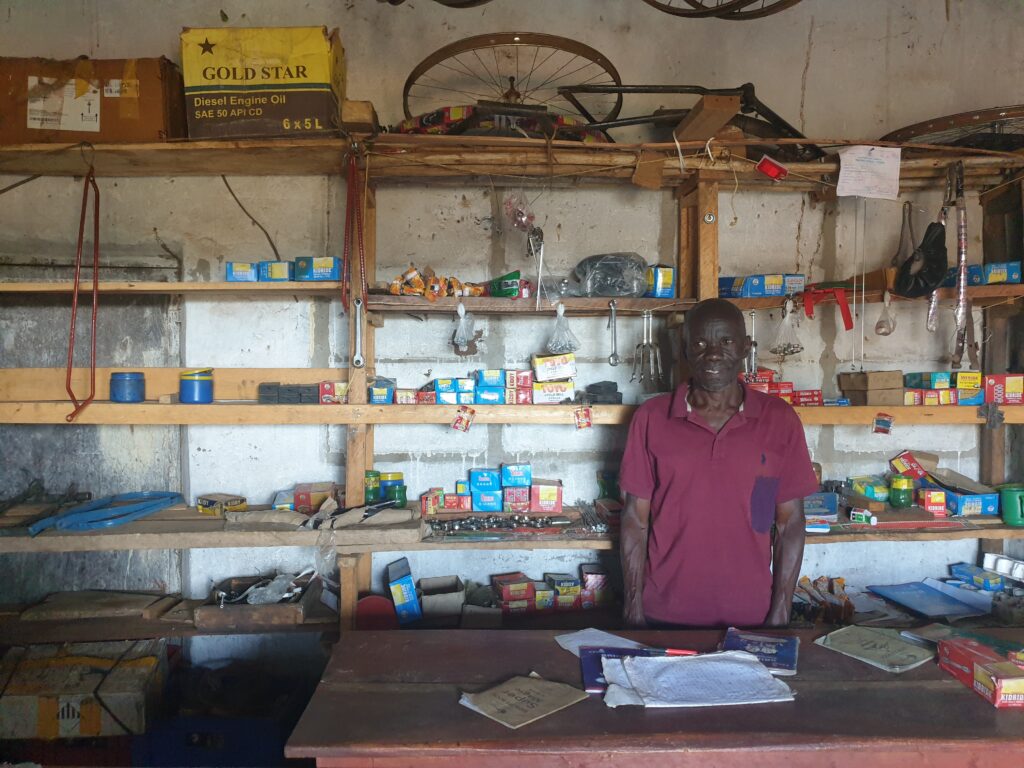When Network for Africa set out to provide mental health support in northern Uganda, we had a specific goal: we wanted to train local people to give trauma counselling to survivors of the devastating civil war.
It quickly became clear that no matter how successful we were in helping people to manage their trauma, we also needed to reach their neighbours/neighbors to dispel widely-held myths about mental illness. Working with our local partner, Basic Needs UK Uganda (BNUU), we have tried to educate whole communities, including traditional leaders and officials. An important part of this is working closely with staff at medical centres/centers (where they exist).
It also emerged that epilepsy is an enormous challenge, keeping children out of school, forcing relatives to become care givers, and preventing adults from fulfilling their potential. Uganda has twice the rate of people affected by epilepsy (2% of the population) as the UK or USA. To know more about why this is, please click here .
News of our work spread, with people from across the region asking to join our programme/program. We knew we were making progress when our ‘graduates’ told us they were ready to rebuild their lives, looking to the future. We support them as they form self-help groups and village savings and loans associations. Our counsellors also provide practical training in running a small business, taking out loans, market research, budgeting and saving.
But something unexpected is happening: graduates who had previously been haunted by horrific flashbacks, or struggled with daily attacks of epilepsy, are grasping the chance to start a business. With a small investment from BNUU, they become market traders, farmers, hairdressers, tailors and restauranteurs. They put their profits into expanding their businesses, and they buy books and uniforms and pay for their children to attend schools. Where once there had been hunger and despair, there is suddenly a blossoming of enterprise that Carnegie, Rockefeller and Sam Walton would be proud of.

This testimony is from a woman called Monsantina:
The Income Generating Activity that Basic Needs gave to me helped me to chase poverty from my home. I was given silverfish [dried anchovies]. I sold all my silverfish. I made a profit. I expanded. I bought tomatoes. I added onto my silverfish. I sold my tomatoes and the silverfish, so I needed to add eggplants. So, I started selling three things: silverfish, tomatoes, and eggplants. Out of this, I was able to rent a garden. And I started planting crops. One of the things I planted last year was pigeon peas. And I harvested two bags of pigeon peas. I also got three bags of groundnuts. As if that is not enough, I went ahead and bought a plot of land. I’m now a landlady. All thanks to Basic Needs. I now have land. I can take care of my patient [relative with epilepsy] very well. I have food in the house. In short. Bye bye to poverty. Thank you so much to BNUU.
All of this begs questions about the untapped potential of people in Africa. We have provided some basic training and small loans to groups of people who had been depressed, ill, and even suicidal when we met them. Most of them had been written off by society. They were not the most obvious group of budding entrepreneurs. But given the chance, and a helping hand, they have flourished. Why does the global north persist in portraying Africans as helpless victims?
And – coming back to northern Uganda – what could be achieved if we could roll out this project?
Thank you to our supporters who have helped us pioneer this approach. Please visit our donation page to support Network for Africa’s work. Thank you.